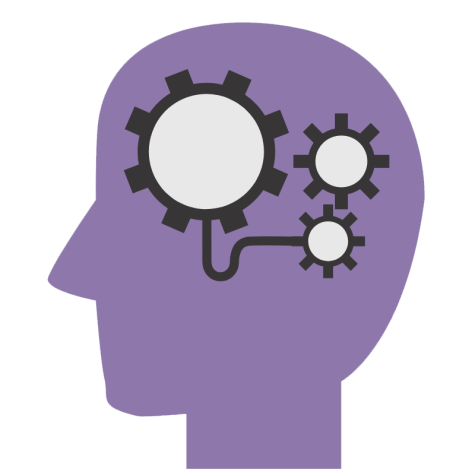I have always been told my fears are irrational — COVID-19 is real
November 3, 2020
I stepped onto the shuttle and chose my seat wisely — about six feet from every other passenger.

That’s when the kid across the aisle from me coughed. Once. Twice. Again.
I stood up on the shuttle as it careened down Whitney Avenue and moved seats, causing myself to stumble and almost fall. For the average person, this isn’t a big deal. The kid was wearing a mask. So was I. I moved seats. It might not have even been COVID-19. But it could be.
This thought won’t leave my mind, and in a mere 30 minutes after the incident, I developed a headache, itchy throat and fatigue.
It nearly takes two days for COVID-19 to create symptoms. It takes a second for my mind.
My whole life I have been told that so many of my concerns are irrational.
No, the lump on your head is not a brain tumor. No, your stomach pain is not linked to colon cancer. No, your achy body is not a sign of Lyme disease, because you haven’t even been bitten by a tick.
The scariest part about COVID-19 is that it’s real, it’s in our communities and people are telling me and everyone else to worry about it. But as a person with Obsessive Compulsive Disorder (OCD), my mind won’t let a cough just be a cough, or a headache just be a headache.
It’s always COVID-19, and in my mind, I am always on the edge of a severe illness.
To go a step further, sometimes my OCD will foment itself in physical sensations. For example, say I heard about someone near me who tested positive for COVID-19. Whether or not I was ever within six feet of this person, my mind will create a symptom — a headache, an itchy throat or even a cough.
The hardest part about this is distinguishing whether or not this symptom is really COVID-19 because in a world where this virus is much more rampant than brain tumors will ever be, it is possible I have it. It is also much more possible that I have a physical symptom manifested from my mental illness.
Most of the time, I feel very alone in this because I see other people going about their lives — eating at restaurants, spending time with friends and making exception after exception for various people that they feel are safe enough to let into their lives.
As a person with OCD, I live by rules and routines. COVID-19 means I have a circle of two people here at Quinnipiac. I sanitize my hands and my belongings multiple times a day. I have a set of activities and people I am comfortable with, and a much longer list of things I am not comfortable with.
I wish this article could turn into a list of ways to cope with OCD during COVID-19, but I am not coping well. I would like to use this as a place to explain what OCD is and why this is affecting people in the OCD community in a new and scary way.
OCD does not mean hyper-organized or germaphobic. These are stereotypes. While some people with OCD are concerned with alignment of objects in their home and keeping things clean, these routines don’t define everyone’s experience.
For many people, OCD creates thoughts that will not go away. For some, it is telling them to wash their hands, again and again. For others, it’s telling them to flick the light switch a certain number of times. The actions are usually nonsensical, but they make a lot of sense to the person thinking about them. They are inflicted with a fear of what will happen if they don’t flick the light or wash their hands, and that fear is enough to make them do it again.
I am very lucky that I do not experience thoughts like these, that force me to compulsively perform an action. My thoughts usually involve physical sensations, like COVID-19 symptoms, as I described.
But whichever type of OCD someone has, COVID-19 makes it worse. The hand washers are washing their hands more than ever. Those glued to their routines have had them uprooted by a new normal. And people like me live in constant fear of sickness.
I don’t know how many people with OCD will read this, but if you do, I am proud of you for getting this far in the year. This has been a challenge for everyone, but especially us. Wash your hands, but not too much. Keep yourself safe and calm but try to let go of the things that you can’t control.







